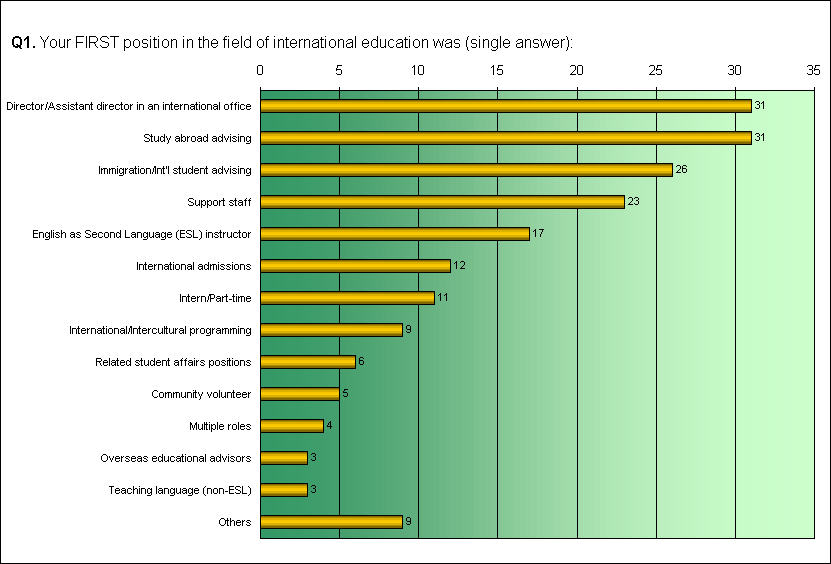
| Respondent's profile | ||||||||
| Demographics | Years in the field | |||||||
| Total responded | 190 | 100.0% | Range | 0 to 39 years | ||||
| Median | 7 years | |||||||
| U.S born | 161 | 84.7% | ||||||
| Female | 117 | 61.6% | ||||||
|
Male |
43 | 22.6% | 3 or less |
47
|
24.7% | |||
|
Unspecified |
1 | 0.5% | 4-6 years |
39
|
20.5% | |||
| 7-9 years |
30
|
15.8% | ||||||
| Foreign born | 29 | 15.3% | 10 or more |
74
|
38.9% | |||
|
Female |
18 | 9.5% | ||||||
|
Male |
11 | 5.8% |

| Analysis for Q1:
Professional identity at the time of entry Prospective international educators should explore all the different forms advising takes. Sometimes people think only of the international student advisor who handles orientation and/or immigration. Admissions is also an area they can explore, as well as study abroad advising, programming (that's how I got into the field), related student personnel (working with international programming in residence halls and married student housing), director (perhaps with more luck in finding a position in a small college), technology fields assisting an international office. |
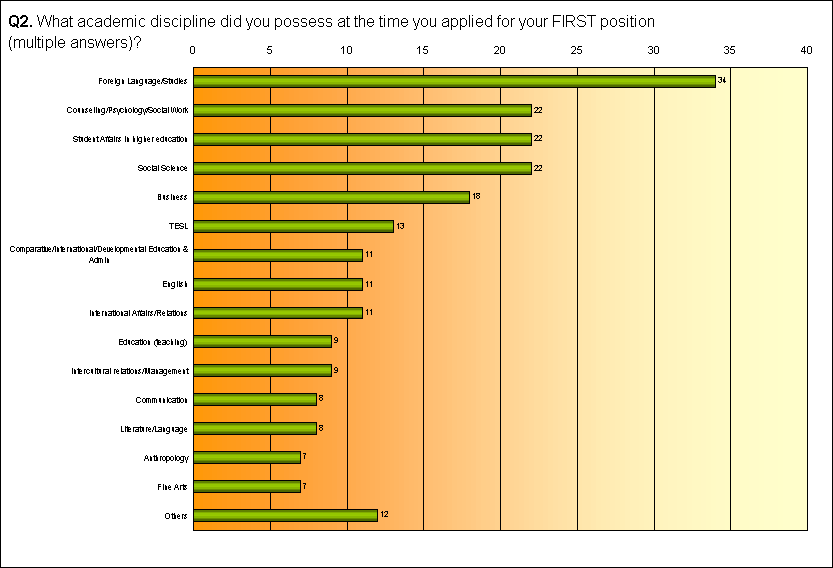
| Analysis for Q2:
Preparation programs There are a few graduate and undergraduate programs which specifically prepare students to become international education specialists. Others come in with foreign languages/studies, student affairs, counseling and related human services background. Still, those represent small groups of international educators, as their academic background is as diverse as they cam be. In my interpretation, this reflects the nature of the field which is practical and general. The way international educators learn what we do is primarily through on the job and by experience. It also reflects the fact that international education is pervasive and across the discipline; one can make "international" out of just about all arts/sciences, education and business majors. |

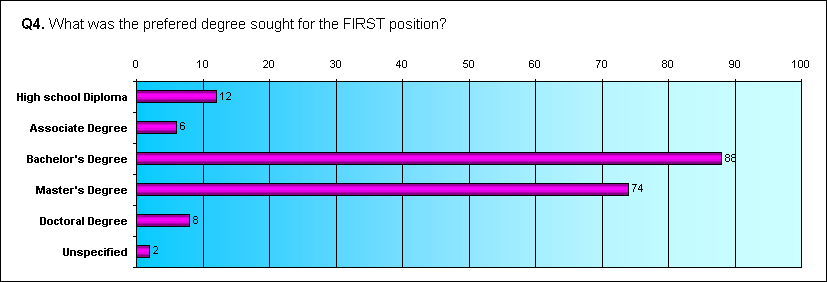
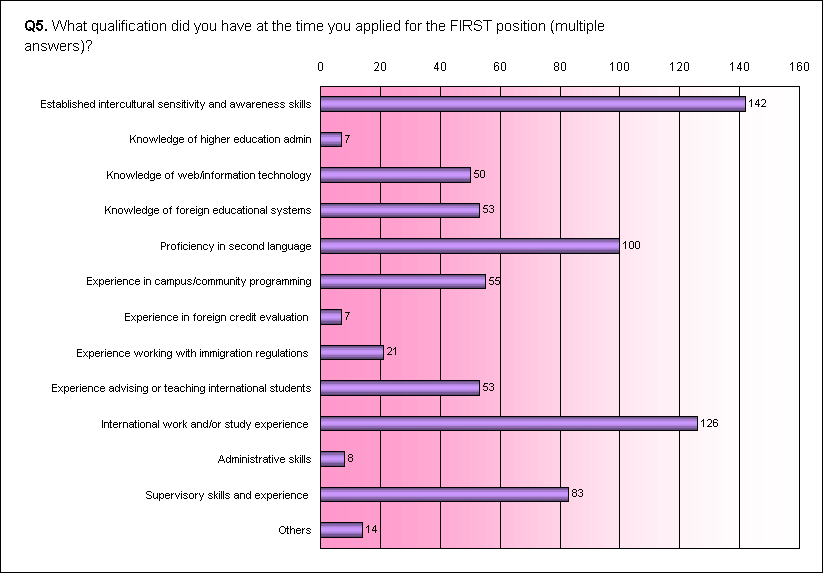
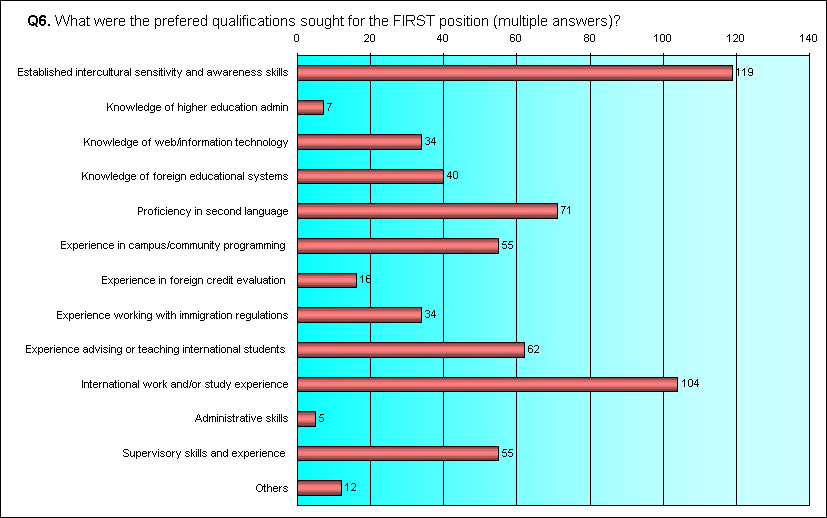
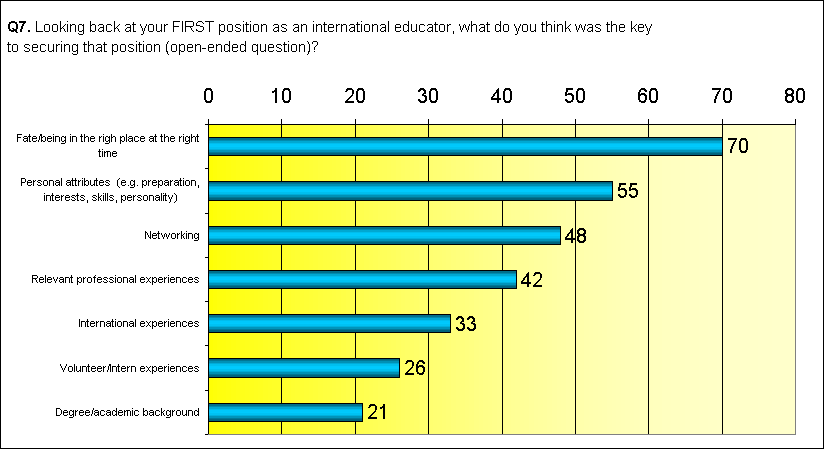
| Analysis for Q7:
Transition from student/volunteer to professional How can someone with little or no work experience can make him/herself more marketable for a job? That was the motive behind the question "Looking back at your FIRST position as an international educator, what do you think was the key to securing that position?" As for entering to the profession, participants identified networking and volunteer as key job search activities. As for the international educators' perceptions of key factors in securing the job, "opportunity" and "preparation" were the two major camps. Luck happens is when the opportunity meets preparation, but to some one played a more critical role than the other. Depending on your inclination toward networking/preparation, networking/opportunity, volunteer/preparation and volunteer/opportunity orientations, you may prefer certain job search strategies or conferencing strategies. Make sure to cover all the bases even if you don't like some of the strategies (for instance, I'm not a big fan of attending receptions). Perhaps, having peers or mentors who can work through your job search process will encourage you to think and act outside the box. . |
Individuals' responses to
Q7 can be viewed here.
For questions or comments about
the survey, please contact Jin Abe
(jin.abe@wmich.edu)
Copyright © 2002. All Rights Reserved.